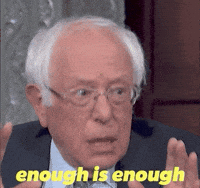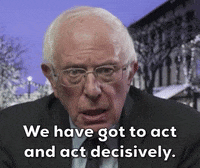This is only a dilemma when your brain is on capitalism
Wikipedia
A place to share interesting articles from Wikipedia.
Rules:
- Only links to Wikipedia permitted
- Please stick to the format "Article Title (other descriptive text/editorialization)"
- Tick the NSFW box for submissions with inappropriate thumbnails
- On Casual Tuesdays, we allow submissions from wikis other than Wikipedia.
Recommended:
- If possible, when submitting please delete the "m." from "en.m.wikipedia.org". This will ensure people clicking from desktop will get the full Wikipedia website.
- Use the search box to see if someone has previously submitted an article. Some apps will also notify you if you are resubmitting an article previously shared on Lemmy.
Well said
There is no dilemma: life over money.
What if there is only one dose, but two people need it?
I'm that case, should the party with more money be entitled to it?
The story was about theft, so first come first serve I guess?
In that case the production of drug should be increased until demand is 100% satisfied.
Universal human ethics: Saving a human life is a more fundamental value than the property rights of another person.
This is the camp I am in.
Is this your universal position? I guess you don't give everything you possibly can without starving to a charity that saves human lives.
With the cost of your phone alone you could fund dozens of vaccinations in poor regions that save lives but you don't.
You let those people die for your own selfish reasons.
I'm playing the devil's advocate of course, but it's interesting where people draw the line.
Not who you replied to, but your arguments remind me of Peter Singer. Basically, that none of us live ethical lives because of exactly the first problem you mentioned. If we CAN donate to a cause we know will do good with the money, more good than we could do ourselves, then we MUST do so. Failing to do so is a moral failing.
It's definitely an appealing argument, and I enjoy exploring the limits of such philosophies. To me, it's about immediacy, guarantee, and proximity. I see something that has a shorter timeline as something that must be acted on with higher priority. Something that's guaranteed is higher priority than a slim chance. And I'm more likely to help those closer to me than across the world.
We're all limited in our capacity to know and to do. I don't have to be perfect, I can accept that some of my actions are less moral than they could be. I just aim to be as above the line, so to speak, trying to bring more positive than negative. I think the comment you initially replied to is a pretty good heuristic to follow to do so.
Is there a name for the concept that
One individual doing that is a tiny drop in a huge bucket-
It would be a drastic change for the giver, and a tiny incremental change for the ones in need? Like, you're fighting a systemic problem that you alone can never solve.
I use "fighting the long defeat":
“I have fought the long defeat and brought other people on to fight the long defeat, and I’m not going to stop because we keep losing. Now I actually think sometimes we may win.” ~Paul Farmer
Do what you must, but don't expect results. Expect defeat, embrace it, and then persist through it.
starfish parable
Ok but I feel like instead of throwing a dozen starfish into the ocean, I'm moving a thousand of them two inches. Sure, some on the margin might survive now, but I've wasted a lot of time.
I had to look it up. Thank you! I learned something new
By the way, I think it's quite different than what that other commenter was asking.
You need to take care of your own life too, selling off everything you have and give it to the red cross is not the way to go. The correct way is probably being pro capitalist, but garness the efficiency to do good (which might be impossible).
What a weird statement too, killing the messenger style.
I guess you wanted to jumpstart the discussion :-) ?
You are just guessing that giving away all your worldly possessions to charities will help people, and not just make some charity management obscenely wealthy.
The Devil's advocate position should be about things the person can directly witness or experience, like do they volunteer their time or have looked for a local place to contribute to etc
Taking the response to a very specific and pointed question out of context and then applying that answer to other things doesn't really make sense.
The answer to the question, "Do you like chocolate?" is not transferrable to other things.
If you said, "Yes, I like chocolate", that does not give me permission to assume that you have agreed to go to the store and buy everybody chocolate.
One does not equal the other.
What stage of ethics is capturing the druggist, torturing him until he signs the rights to the drug over to you, and releasing the formula for people to make for free?
It depends on your justification for doing so, but I expect it will be universal human ethics.
Well, almost universal.
I wasn't expecting and liked the idea that whether the respondent says yes or no isn't as important as the category of reason they give.
The husband was in the right!
I thought this was going to be about ketchup vs catsup.
Saving a human life is a more fundamental value than the property rights of another person.


Mangione’s Dilemma is another variant: “If Heinz’s wife dies, alongside 900 thousand other people, because of the scientist’s chosen profit margin, and Heinz proceeds to kill the scientist, should he be jailed?”